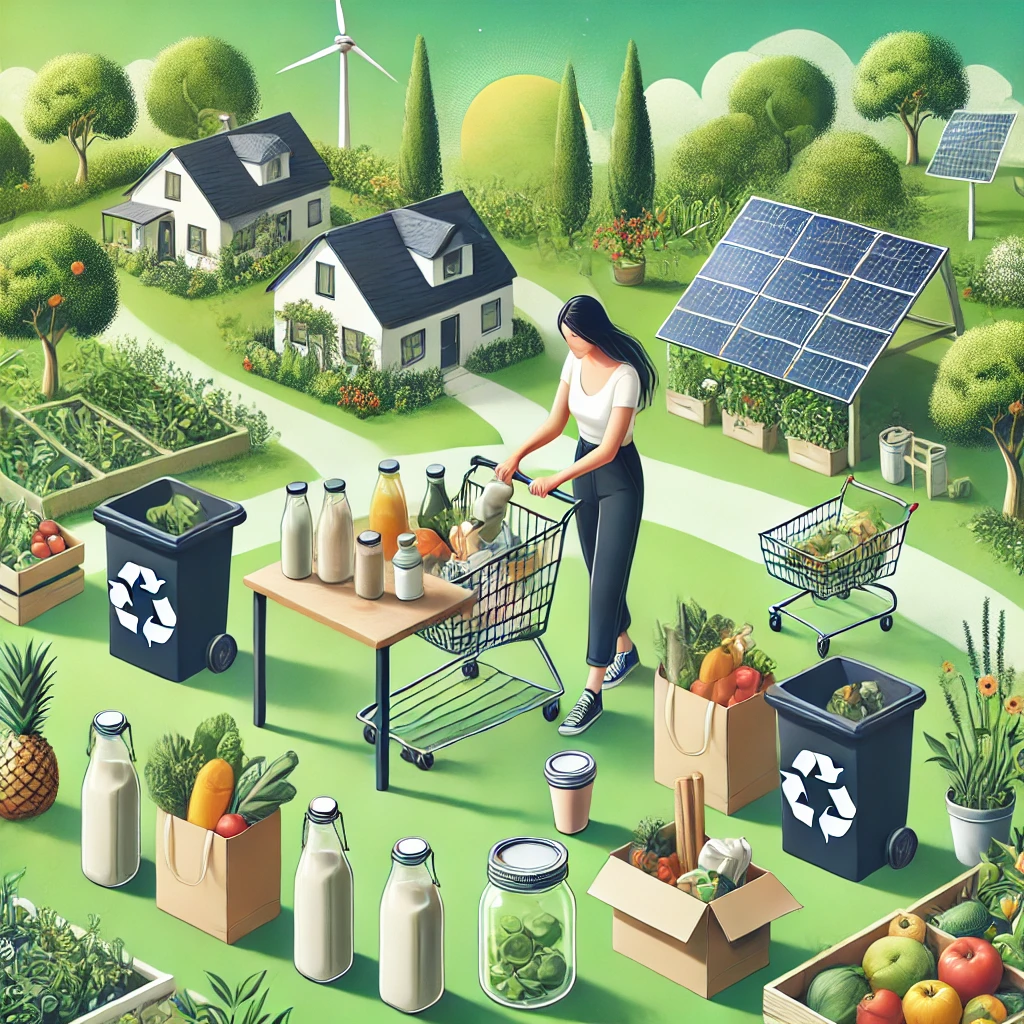
How a Zero-Waste Lifestyle Can Positively Impact the Environment
What is a Zero-Waste Lifestyle?
Imagine a world where nothing goes to waste—where everything we use is repurposed, recycled, or composted. That’s the essence of a zero-waste lifestyle. It’s about minimizing landfill waste by making more sustainable choices daily.
Why Should You Care About Living Zero-Waste?
The earth is drowning in waste! Landfills are growing, oceans are filling with plastic, and the air is getting polluted. But the good news? We can reverse this damage by embracing a more eco-conscious way of life.
Top Benefits of a Zero-Waste Lifestyle
1. Less Waste Means Less Pollution
When you reduce waste, you directly cut down on pollution. Plastics in landfills release harmful chemicals, but by choosing reusable alternatives, you help keep the planet cleaner.
2. Saves Money in the Long Run
Going zero-waste isn’t just good for the planet—it’s good for your wallet too! Think about it: reusable water bottles, cloth shopping bags, and buying in bulk all help save money.
3. Helps Combat Climate Change
Waste production contributes to greenhouse gas emissions. Cutting down on disposable plastics and food waste helps reduce your carbon footprint, a crucial step in climate change solutions.
How Renewable Energy Supports a Zero-Waste Lifestyle
Reducing waste isn’t just about cutting plastic; it’s also about using cleaner energy. Switching to renewable energy insights like solar power for homes significantly decreases reliance on fossil fuels.
Energy-Efficient Innovations for a Greener Home
1. Solar Power for Homes
Want to take sustainability to the next level? Consider installing solar panels! The benefits of using solar energy at home include lower electricity bills and reduced carbon emissions.
2. Energy-Efficient Appliances
Investing in energy-efficient appliances means using less power and saving money. From refrigerators to washing machines, modern technology is making sustainable living easier than ever.
3. Top Green Building Techniques
If you’re planning to build or renovate, consider top green building techniques such as sustainable materials, better insulation, and smart water conservation systems.
The Role of Green Technology in Zero-Waste Living
Innovation is driving the sustainability movement forward. Green technology reviews highlight advancements in waste management, eco-friendly packaging, and carbon-neutral manufacturing.
Best Electric Vehicles for an Eco-Friendly Lifestyle
Transportation plays a huge role in sustainability. The best electric vehicles 2025 offer a cleaner alternative to gasoline-powered cars. Switching to EVs reduces air pollution and carbon emissions.
How to Start Living a Zero-Waste Lifestyle
Ready to make the switch? Here are some practical sustainable living tips to help you transition:
1. Refuse Single-Use Plastics
Say no to plastic straws, cutlery, and bags. Opt for reusable alternatives like metal straws and cloth grocery bags.
2. Shop Smart
Buy in bulk, bring your own containers, and choose sustainable brands.
3. Compost Organic Waste
Food scraps don’t have to end up in landfills. Composting helps create rich soil and reduces methane emissions.
4. Opt for Second-Hand Items
Before buying something new, check if you can get it second-hand. Thrift stores and online marketplaces are great for this.
Top Green Technologies Shaping the Future
From biodegradable packaging to AI-powered waste sorting, top green technologies shaping the future are making sustainability more accessible than ever.
Final Thoughts
A zero-waste lifestyle isn’t about being perfect—it’s about making better choices every day. Whether it’s cutting down on plastic, investing in energy-efficient innovations, or adopting climate change solutions, every small step adds up. So, why not start today?
FAQs
1. What is the easiest way to start a zero-waste lifestyle?
Start small! Carry a reusable water bottle, bring your own bags, and refuse single-use plastics.
2. How does renewable energy help in reducing waste?
Renewable energy sources like solar and wind power reduce dependency on fossil fuels, cutting emissions and pollution.
3. What are the best energy-efficient appliances for home use?
Look for ENERGY STAR-rated refrigerators, washing machines, and LED lighting to lower your energy consumption.
4. Are electric vehicles truly sustainable?
Yes! While manufacturing EVs has an environmental impact, their long-term benefits—zero emissions and energy efficiency—outweigh traditional cars.
5. How can businesses adopt a zero-waste approach?
Businesses can reduce waste by switching to biodegradable packaging, using digital alternatives, and implementing recycling programs.